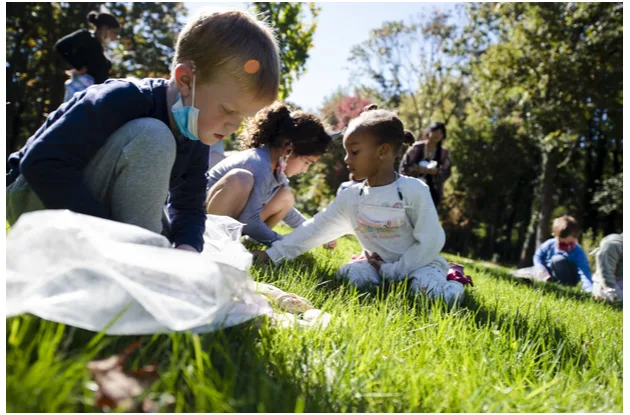Raising a child who is predisposed to do wonders with his or her mind is possible. Enable your child to succeed by following our expert’s fundamental tips for guiding your child’s lifelong learning.
|
Inspire your budding genius with
|
Creating a stuffed toy animal in a store filled with all the essential elements is entertaining and fun. You walk in behind eager kids and begin assembling the pieces, adding adornments you choose until you have a distinctive plush toy. Starting with a body that holds the accessories in place, you stuff it for shape and form. Next, the clothing and trimmings that make it unique are added. With a name, hobbies, and character traits made to order, this special toy comes to life. The final result is gratifying: a personal creation to treasure that brings you joy.
While not quite as simple as making a stuffed bear, “building” genius characteristics in a child is possible. Even though this pursuit requires time, energy, and commitment, it is an exciting journey with amazing long-term benefits for both you and your child. Every child is clever, creative, and able to learn. Each has an incredible capacity to absorb information and immediately use it. As a parent-educator, your ability and persistence to capitalize on this is significant. It can make the difference between the development of average aptitude and abilities or extraordinary intelligence and talents. The earlier you begin the better, but it is never too late in a child’s life to start.
Setting the Foundation
The foundation step of building a genius is critically important. Just as the body of a stuffed bear holds it together, your support gives a child structure to his world. As a parent, you are your child’s first teacher, and throughout his life you will be the most important and influential teacher he has. You can help build the foundation of your child’s future talents and successes by introducing him to various subjects, activities, and concepts right from the start.
As he grows, let your child’s natural abilities unfold and his interests develop by fostering age-appropriate interactions with sports, crafts, musical instruments, and academic studies. Study your child. Does your son start dancing when music plays? Can he keep a beat with his hands? Maybe your daughter has a good arm with a ball, or is fast on her feet. These are signs of early development in music and physical ability, for example, and will become apparent at a very young age if you pay attention.
Be aware of gender biases by being true to your child’s actual interests. As these take shape and skill sets develop, cultivate continued opportunities to engage your child in the ones he gravitates towards and where he displays natural gift. Research shows that spending ample time on an activity is the one true way to improve that area. Practice really does make perfect. However, what you practice is the critical element. Build a child’s foundation by providing him with myriad opportunities—and then support the ones he enjoys and where talent is evident.
Establishing and Evaluating Goals
Your toy won’t have substance without its stuffing, its inner core to give it shape and keep its head upright. Similarly, a child needs guidance in developing substance. As a parent, you can infuse the critical skills of goal-setting and reflection in your family through routine practice and modeling. This creates personal intelligence and develops self-confidence, so your child can hold her head up high.
Start in the early elementary years. Set and record daily, weekly, monthly, even yearly goals together. Review and evaluate those goals periodically. Ask yourselves, “What did we each accomplish? What did we learn? What will each of us do differently next time?” Embracing a lifelong custom of setting goals and evaluating progress is vital for future success. Motivational speakers, politicians, sports stars, celebrities, and CEOs say it is impossible to be successful without this habit. Setting and analyzing goals with your child helps build confidence by acknowledging her accomplishments and uncovering areas for improvement. This process instills a healthy tolerance for the inevitable (and teachable) failure, which promotes self-awareness and a desire to achieve.
Making It Fun
What is a stuffed bear without festive decoration? Not much fun! Likewise, the practice of enhancing genius-skills should be entertaining. No one wants to play with a plain teddy, and children just won’t tolerate boring lessons either. Rightfully so, there is simply no reason to be bored while learning.
Make it a priority for the whole family to enjoy the process. This may seem like a simple step but it is not one to overlook. You have certainly noticed that when a child is enjoying a game, it keeps his attention riveted. However, as soon as the fun ends, he is on to another pursuit. Be sure to create an element of excitement for long-term engagement. Consider learning a tactical game, like chess or Stratego. Set goals that end in an interesting activity as a reward for accomplishment, such as a trip to the museum to explore ancient cultures or the zoo for a study on primate behavior. The more fun the experience, the less your child will even notice the learning involved.
Aspire to incorporate all three steps for “genius creation,” such as setting a goal for a musical child to play the violin for 20 minutes a night. As a reward, you can picnic on the lawn of an amphitheater during an orchestra performance in July. The added bonus to these efforts is the development of a strong bond with your child and memories that will last a lifetime.
Colleen Carroll, EdD, is a children’s leadership expert and family consultant (visit her website for more information). Dr. Carroll divides her time between upstate NY and Westchester County.
Also see:
Seven Tips to Raise a Multilingual Child
Five Tips to Manage Your Child’s Busy After-School Schedule
Strategies to Start the School Year Right






















